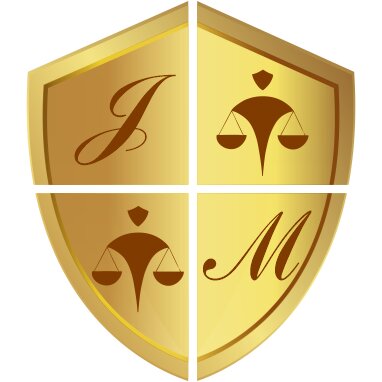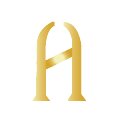Best Drunk Driving Lawyers in Brazil
Share your needs with us, get contacted by law firms.
Free. Takes 2 min.
Or refine your search by selecting a city:
List of the best lawyers in Brazil
About Drunk Driving Law in Brazil
Drunk driving, known as "embriaguez ao volante," is a significant legal issue in Brazil, characterized by strict laws and severe penalties. The Brazilian Traffic Code (Código de Trânsito Brasileiro, CTB) outlines the legal framework regulating driving under the influence of alcohol or drugs. The permissible blood alcohol limit is 0.0%, effectively adopting a zero-tolerance policy against drunk driving. This means any measurable amount of alcohol in one's system while operating a vehicle can lead to legal consequences. Brazil enforces these laws vigorously, with random breath tests and operations carried out frequently to deter drivers from taking to the road under the influence.
Why You May Need a Lawyer
Given the strict regulations and potential repercussions associated with drunk driving in Brazil, seeking legal advice is often necessary. Situations where legal assistance may be required include:
- If you have been stopped by law enforcement for suspicion of drunk driving and refused to take a breathalyzer test.
- If you were involved in a traffic accident while under the influence of alcohol.
- If you are facing severe penalties such as fines, license suspension, or imprisonment.
- If you want to contest the results of a breath test or challenge the legality of the traffic stop.
- If you are unfamiliar with Brazilian legal procedures and need guidance on navigating the court system.
Local Laws Overview
The key aspects of local laws concerning drunk driving in Brazil include:
- Zero-tolerance policy: No permissible level of alcohol in the bloodstream of drivers.
- Penalties for violations can include fines, suspension of driving privileges, vehicle impoundment, and even imprisonment depending on the severity and circumstances around the incident.
- The "Lei Seca" (Dry Law) strengthens the enforcement of these laws with routine police checkpoints known as "blitzes," where drivers may be stopped for breathalyzer tests.
- Refusal to take a breathalyzer test results in administrative penalties such as heavy fines and suspension of the driver's license.
Frequently Asked Questions
What is the legal blood alcohol limit for drivers in Brazil?
The legal blood alcohol concentration (BAC) limit is 0.0%, meaning any amount can lead to penalties.
What happens if I refuse to take a breathalyzer test?
Refusal results in administrative penalties, including fines and suspension of your driver's license.
Are the penalties different for repeat offenders?
Yes, repeat offenders face harsher penalties, including longer license suspensions and potentially longer prison sentences.
What are the consequences of a drunk driving conviction?
Consequences can include financial penalties, mandatory driving courses, license suspension, and possible jail time.
Can I contest a drunk driving charge?
Yes, you can contest a charge with the help of a lawyer, especially if there are grounds for challenging the evidence or procedure.
What should I do if I am stopped at a police checkpoint?
Cooperate with law enforcement, provide necessary documentation, and take a breathalyzer test if required.
How long does a typical drunk driving legal process take?
The duration varies based on case complexity, whether it's contested, and the local judicial backlog. It can range from a few months to over a year.
Can foreigners face deportation for drunk driving in Brazil?
Generally, deportation is not a direct consequence, but legal violations can affect visa or residency status.
Are there increased penalties for causing an accident while drunk?
Yes, causing an accident, especially one resulting in injury or death, can lead to significant legal repercussions, including imprisonment.
What is the process for reclaiming a suspended license?
You typically need to complete the legal penalties, potentially take a safety course, and request reinstatement from the relevant traffic authority.
Additional Resources
- Denatran (National Traffic Department): Provides information on traffic laws and regulations in Brazil.
- DETRAN (State Traffic Departments): Offers local assistance on traffic-related issues, including license reinstatement processes.
- OAB (Ordem dos Advogados do Brasil): Can help in finding qualified legal professionals specializing in traffic law.
- Local governmental offices or legal aid organizations may provide resources for understanding and dealing with traffic law violations.
Next Steps
If you require legal assistance for a drunk driving case in Brazil, consider the following steps:
- Gather all relevant documentation and evidence related to your case.
- Seek a qualified lawyer with experience in traffic and criminal law to understand your legal position.
- Schedule a consultation to discuss your case, potential defenses, and legal options available to you.
- Follow your lawyer's guidance to prepare for potential legal proceedings or negotiations with the authorities.
- Stay informed about local laws and updates to avoid future legal issues related to drunk driving.
Lawzana helps you find the best lawyers and law firms in Brazil through a curated and pre-screened list of qualified legal professionals. Our platform offers rankings and detailed profiles of attorneys and law firms, allowing you to compare based on practice areas, including Drunk Driving, experience, and client feedback.
Each profile includes a description of the firm's areas of practice, client reviews, team members and partners, year of establishment, spoken languages, office locations, contact information, social media presence, and any published articles or resources. Most firms on our platform speak English and are experienced in both local and international legal matters.
Get a quote from top-rated law firms in Brazil — quickly, securely, and without unnecessary hassle.
Disclaimer:
The information provided on this page is for general informational purposes only and does not constitute legal advice. While we strive to ensure the accuracy and relevance of the content, legal information may change over time, and interpretations of the law can vary. You should always consult with a qualified legal professional for advice specific to your situation.
We disclaim all liability for actions taken or not taken based on the content of this page. If you believe any information is incorrect or outdated, please contact us, and we will review and update it where appropriate.
Browse drunk driving law firms by city in Brazil
Refine your search by selecting a city.














